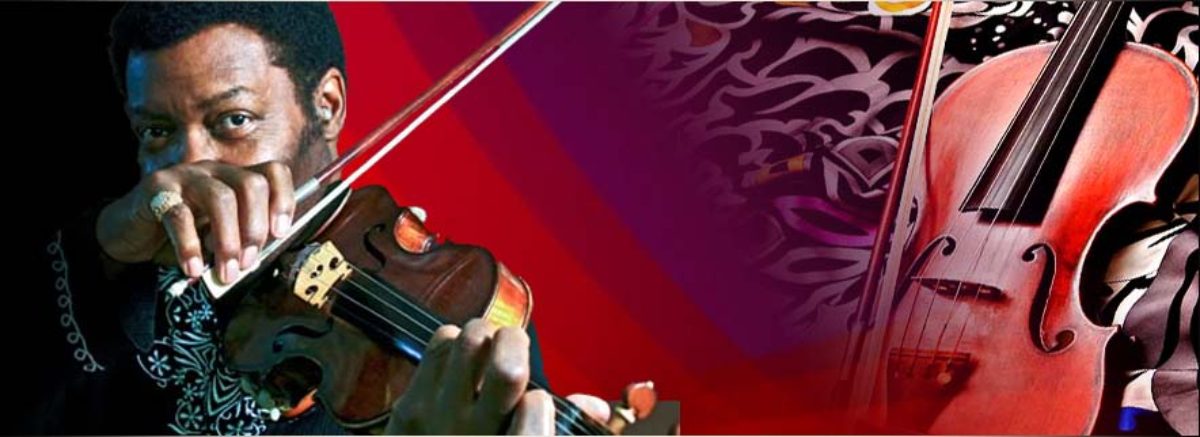
SLSO First Violinist Darwyn Apple reveals his aesthetic beliefs and recalls experiences of musical perfection.
When he is approached to contribute his thoughts on the musician’s experience, Apple hesitates. It takes intense concentration to perform such complex and demanding music at the highest degree of excellence week after week. So he considers his time, how much of it he has to invest in an undertaking that will include interviews and then hours in the photo studio for the season brochure. He also considers exactly what he wants to say, and how he wants to say it, because music is important. It is the most important thing in his life.
Apple finally agrees to take part in the project and a series of brief interviews ensue-usually during breaks in rehearsals-in which he offers up his impressions like artist sketches, the preliminary drawings made before a painter tackles the big canvas. Asked to describe the experience of reaching musical perfection on stage, Apple searches for the right image. “Sometimes,” he says, “the orchestra flows, together so gracefully. I think of dancers: poised, effortless, seamless.” Later, the violinist notes that, in his own moments of musical transcendence, “It is as if I am being played.” Not all of his special moments on stage have been while playing, however. Apple recalls the time that Leontyne Price appeared with the orchestra and took him and fellow violinist Charlene Clark by the hands and walked with them from the stage. “She didn’t have to do that,” he says, but it was a rich moment of fellowship between three African American artists who had found success in the classical sphere.
“In its perfection,”, says Apple, “the music, body and soul become one.”
And in between these efforts at encapsulating his vision of the musician’s experience, Apple shares a few of his opinions, his likes and his dislikes. One part of the concert experience is a major pet peeve.
I do not believe you should assault an audience with noise at the start of a concert,” he says resolutely. He means the practicing that occurs on stage during each interval. “If you haven’t practiced appropriately before you’ve gone on stage you’re not going to do it on. In my European experience, the stage is silent until they tune and play. You have silence, which is really the best way for the music to begin.”
Apple has a purist’s esthetic, so it is not surprising that he appears excitedly one day with a single sentence that fully captures his performance ideal. “In its perfection,” he writes, “the music, body, and soul become one.”
The words resonate. Not long after, Apple is in the studio of Scott Ferguson, of FKPhoto, to help create an image that will accompany those words. He is affable and charming, with stories to tell.
Apple grew up in Detroit. As a child he was enchanted by the music of virtuosos Nathan Milstein and David Oistrakh, which he heard on vinyl discs that belonged to his aunt and mother. “You mustn’t forget Jascha,” he adds, Jascha Heifetz, who taught one of my most influential teachers and mentors, Joseph Knitzer.”
By the age of four Apple knew he would be a violinist. By age seven he had begun his music training. He debuted with the Detroit Symphony at 17. He then studied music in Italy as a Fulbright scholar and played briefly in New Orleans before he joined the Saint Louis Symphony Orchestra in 1971.
Apple tells a story about auditioning. In the core repertoire, there are passages in any musician’s part that must be hit dead-on every time. Apple recalls a solo audition for Gunther Herbig of the Detroit Symphony. “I went to Detroit and played for him the Second Wieniawski Violin Concerto. I played through the first two movements and he said, `I’ve heard enough’ and I had the job.”
Other conductors are even more specific. “A friend of mine tells about auditioning for Arthur Fiedler,” Apple continues. “Fiedler would open the score and say, `Play from A to C.’ He absolutely picked phrases, and after hearing a few you were hired, or not. The idea is that if you can play A through C, you can play about anything, and if you are going to make a mistake, it must not be here.”
Apple often gives lecture/demonstrations to schoolchildren, and one of the first things they want to know is how an African American man took up classical violin in a city where the Motown sounds of the Temptations and the Supremes and Marvin Gaye were the artistic standards. Apple tells them that he was born with a gift. “You need to find your passion and nurture it,” he tells them, “and then nurture it in others as well.” Ferguson changes the lighting, changes the perspective from which to view Apple, whose face, as it turns out, conveys a wealth of photogenic expression. He holds his violin in his hands as if it were an offering.
by Eddie Silva
Eddie Silva is the publications manager for the Saint Louis Symphony Orchestra.
This article is reproduced by permission of the author, Eddie Silva, and The Saint Louis Symphony Orchestra Society. Photos are those which were in the original publication and these are also used by permission.

